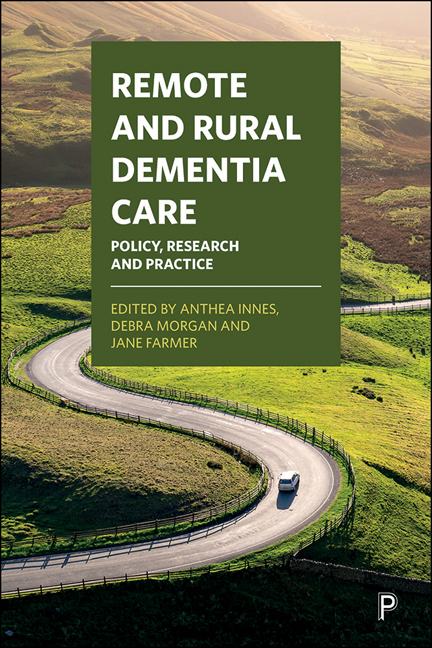3 - Addressing Dementia Needs in Australia
Published online by Cambridge University Press: 10 March 2021
Summary
Introduction
Of 23 million Australians, there were 436,366 people living with a diagnosis of dementia in 2018 (Dementia Australia, 2018a). Dementia Australia estimates that close to 600,000 people will be living with dementia in the next decade and by 2058, the number will rise to over a million (Dementia Australia, 2018a). Dementia is the second leading cause of death for Australians (AIHW, 2016) and the single greatest cause of disability in older Australians (aged 65 years or older) (AIHW, 2012).
By 2025, the annual cost of dementia, to Australia, is projected to be around A$18.7 billion and A$36.8 billion by 2056. Unpaid family carers play a critical role in providing care for Australians living with dementia; informal carers are estimated to provide approximately A$60.3 billion of unpaid services annually, which translates to over A$1 billion per week (Deloitte Access Economics, 2015).
People of Aboriginal and Torres Strait Islander background have up to five times higher risk of developing dementia, compared with the general population (NATSEM, 2017) and Indigenous people tend to be affected by dementia at an earlier age than other Australians. Around 20 per cent of Australians with dementia come from a culturally or linguistically diverse (that is, non-White English-speaking) background.
Australian Government policy relating to dementia
Australia's current policy approach is guided by the National Framework for Action on Dementia 2015– 2019 (Department of Health, 2015) and aims to ‘Improve the quality of life for people living with dementia and their support networks’ (p 2) by ‘drawing on current evidence to promote dementia friendly societies and delivery of consumer-focused care’ (p 1).
The priority areas of the framework comprise:
a commitment to increasing awareness and reducing risk;
timely diagnosis;
access to care and support following diagnosis;
access to ongoing care and support;
access to care and support during and after hospital care;
access to end-of-life and palliative care; and
promotion of, and support for, research.
Driven by these priorities, the objectives of the framework are supported through a complex network of health and aged care services delivered variously through funding and services from Commonwealth (that is, national federal) government, state and territory governments, and local governments as well as private and not-for profit service providers.
- Type
- Chapter
- Information
- Remote and Rural Dementia CarePolicy, Research and Practice, pp. 37 - 56Publisher: Bristol University PressPrint publication year: 2020



